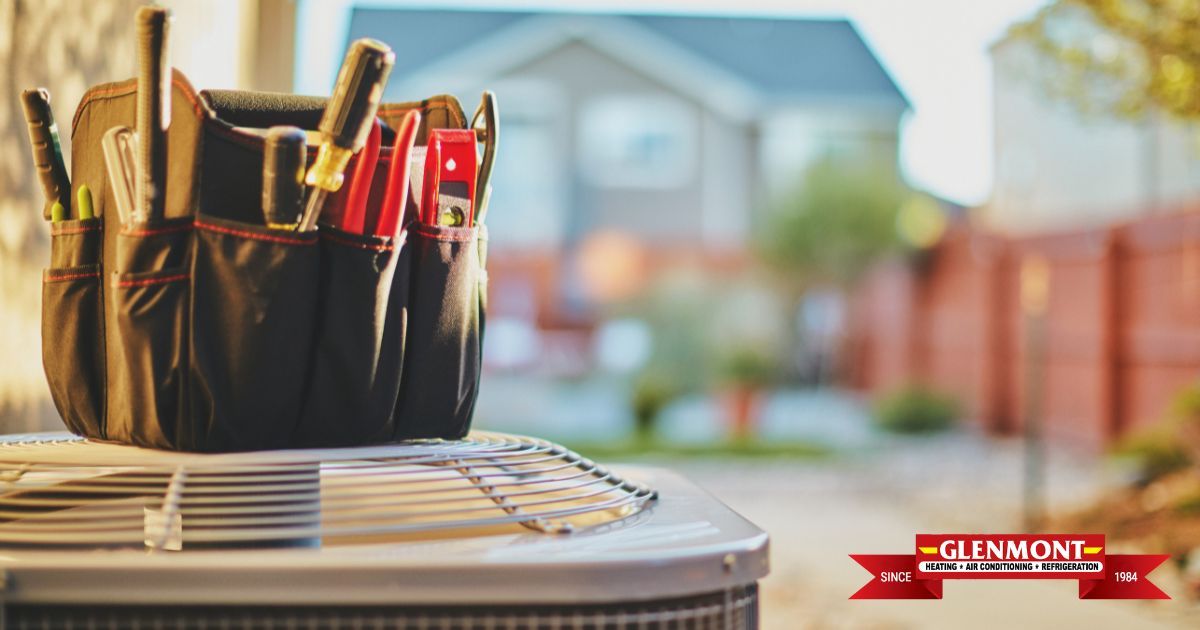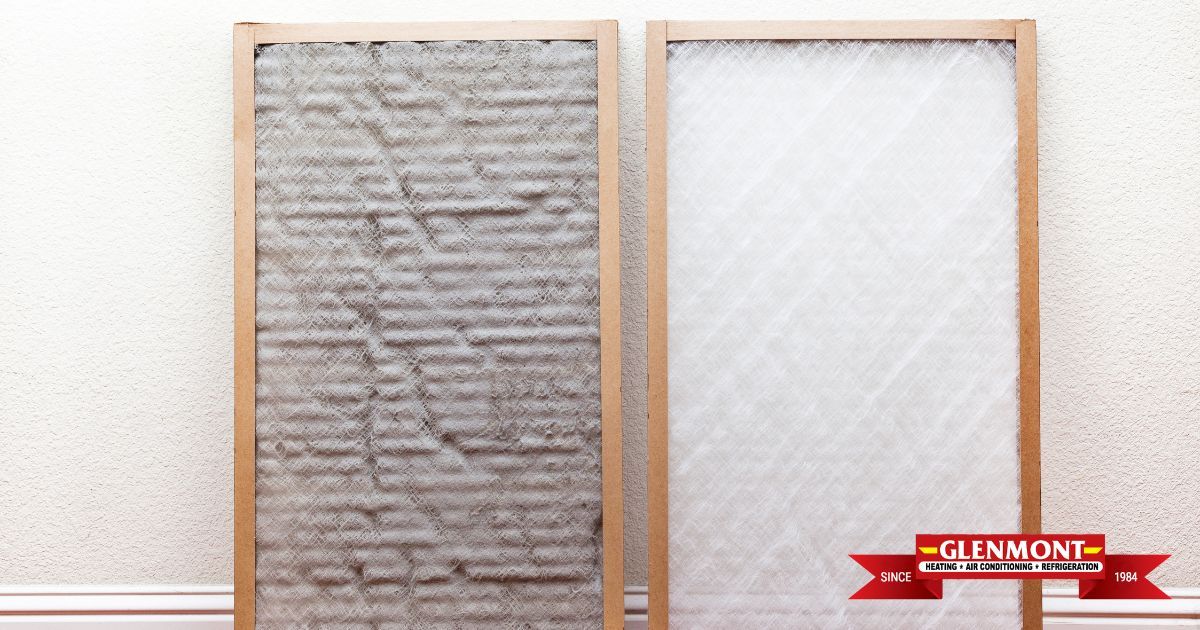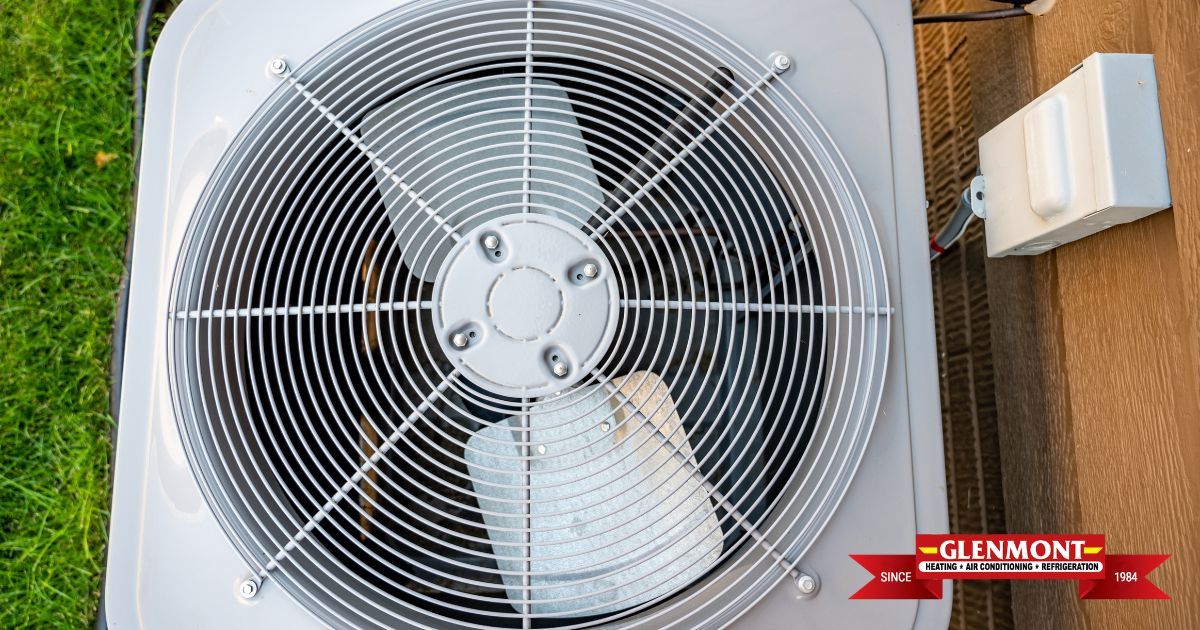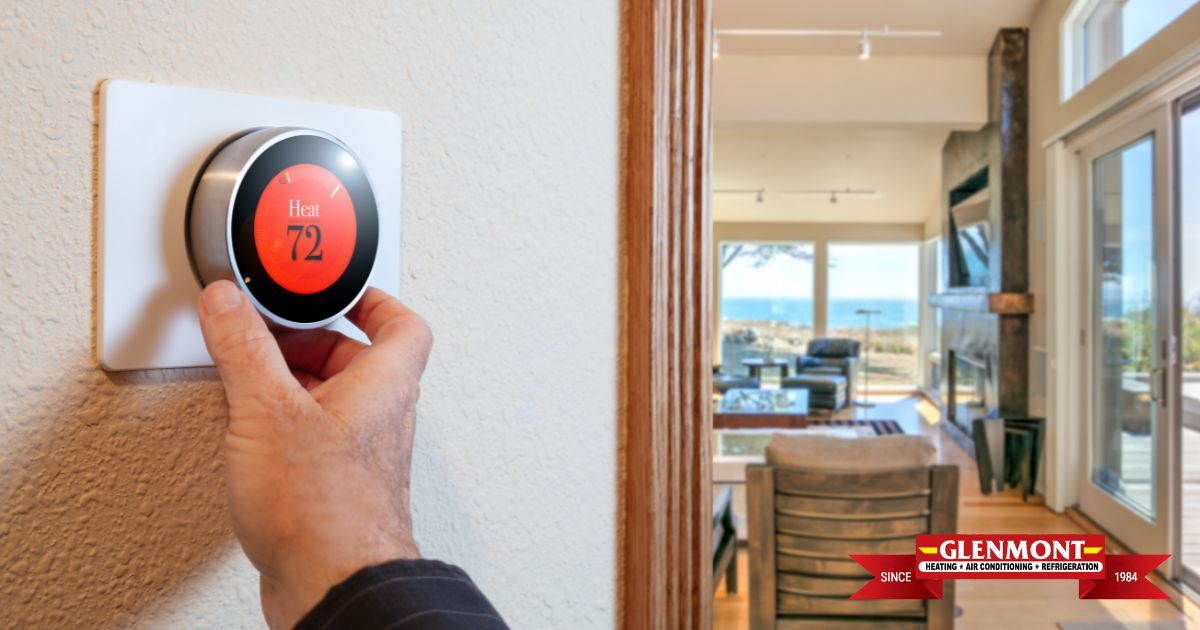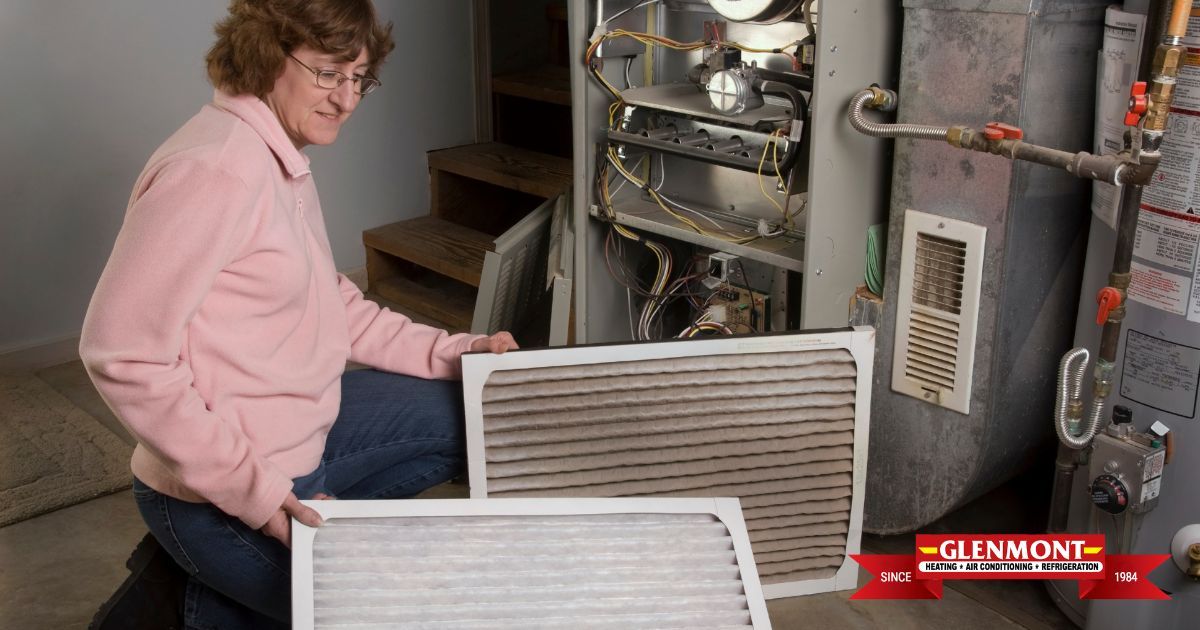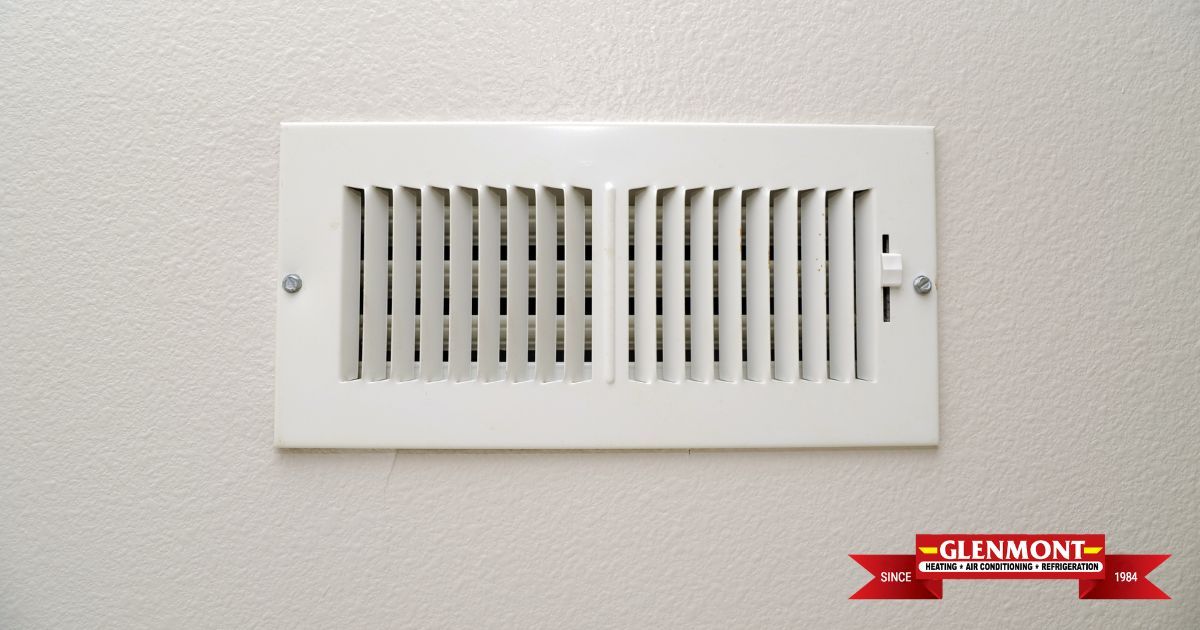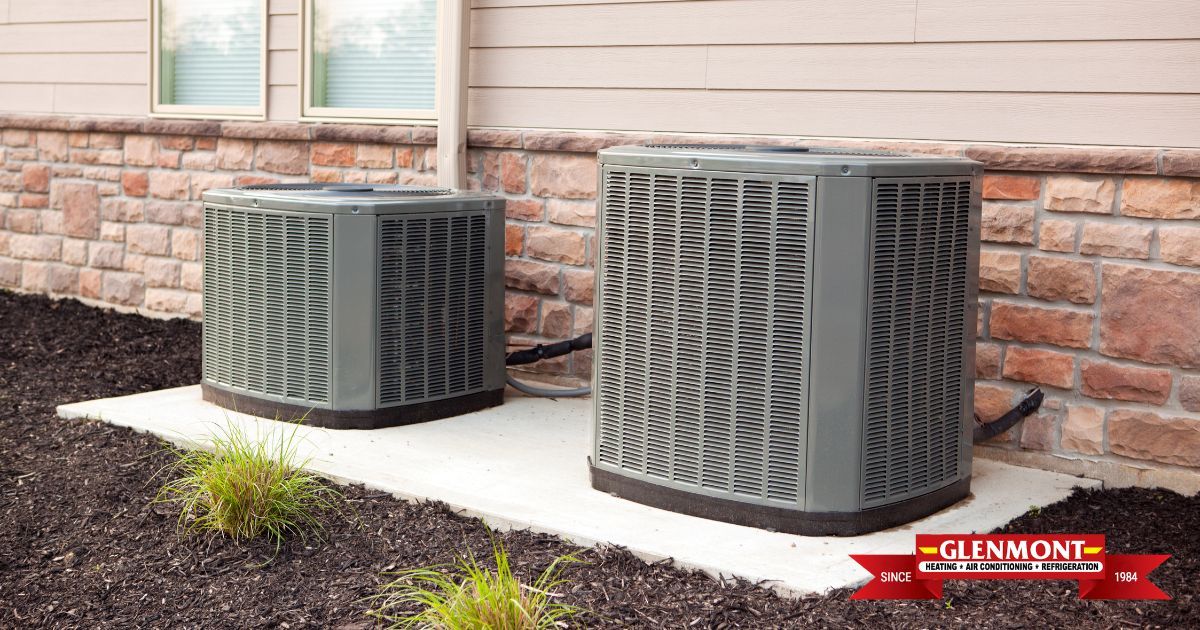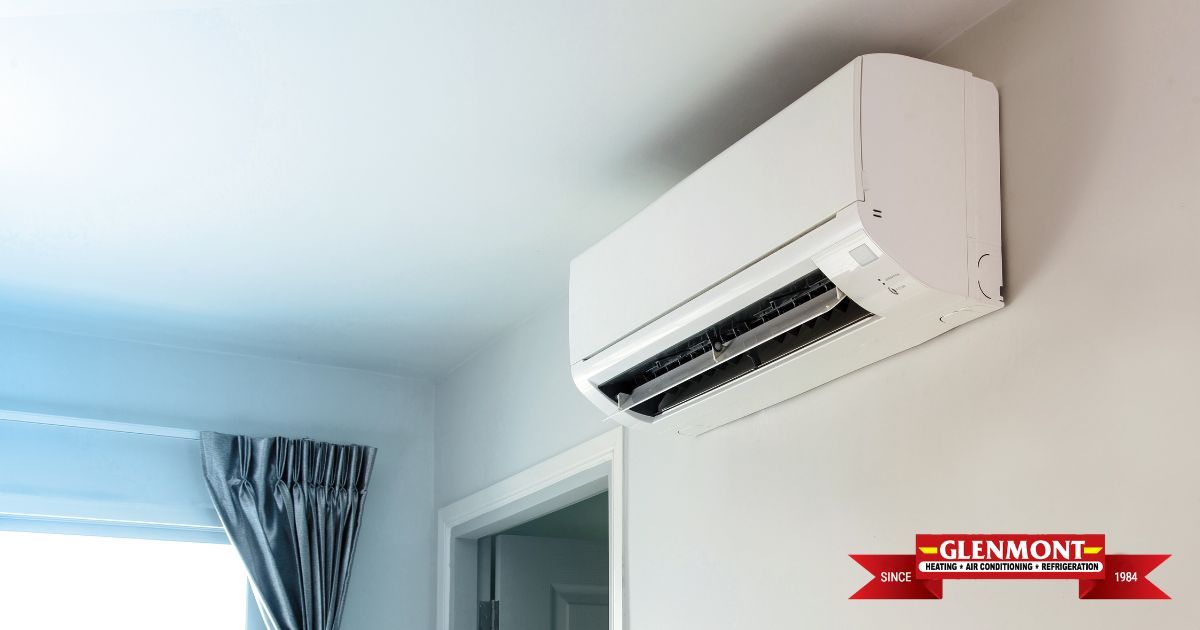Reasons Your Air Conditioner Stopped Working
Maryland summers can be hot and uncomfortable, which is why a functioning air conditioner is essential for safety and comfort. While your air conditioner may seem like it is working properly, AC maintenance in Rockville, MD is the only way to be sure. Without preventative maintenance, homeowners are at risk for an AC breakdown due to various causes. In this article, we will explain reasons why your air conditioner could have stopped working and how Glenmont can provide quality AC repairs in Rockville, MD and surrounding areas.
How Your Air Conditioner Works
To understand why your air conditioner is malfunctioning, it is important to understand the process of how it operates. Your air conditioner works by taking in warm air, using coolant to reduce it to its intended temperature, and distributing the air throughout your home. It has five basic components:
- Compressor: The compressor raises the temperature and pressure of the refrigerant and then sends it to the condenser coil.
- Condenser coil: The condenser coil converts the refrigerant from a gas to a liquid and sends it to the indoor portion of the air conditioner, where it crosses the evaporator coil. It contains a fan which draws the hot indoor air out of your home.
- Evaporator coil: The evaporator coil causes the refrigerant to cool another coil, which a fan blows air over, cooling it. The refrigerant absorbs the heat from your home and carries it out of the home.
- Fan: The fan blows the cooled air through the ducts and into each room of your home.
- Expansion device: This valve regulates how much refrigerant moves from the condenser coil to the evaporator coil.
When any of these components malfunction, your air conditioner will either breakdown immediately or continue to function until an AC breakdown in Rockville, MD occurs.
What Causes Your Air Conditioner To Stop Working
There are many different reasons your air conditioner can break down. The Glenmont team has been providing HVAC services in Rockville, MD for over 35 years and have seen about every AC malfunction. Below are the most common reasons we have seen cause air conditioners to stop working.
Mechanical Problems
Your air conditioner is a complex network of moving pieces, all of which are vulnerable to old age and damage. How can each important component break? Consider the following:
- Compressor: When the compressor breaks, the refrigerant can’t circulate between the indoor and outdoor coils, and your air conditioner blows lukewarm air. The compressor is an expensive component to replace, but you can usually avoid repairing it with annual AC maintenance.
- Condenser: When your condenser fan breaks, it can’t exhaust heated air, and, at best, your air conditioner blows warm air. At worst, a broken fan overheats your AC unit, causing more serious damage.
- Evaporator coil: This coil houses tubes of refrigerant and is prone to leaking. When the coil breaks, the air conditioner blows warm air. If you notice ice on your AC unit during summer, your evaporator coil is leaking and can cause more serious damage to your air conditioner.
- Fans: Your air conditioner contains several fans that can break. Depending on which fan malfunctions, your AC unit might blow warm air, have reduced air flow, or expel no air at all.
Refrigerant Levels
Refrigerant is fundamental to a fully functioning air conditioner. While your air conditioner contains its refrigerant within a closed system, wear and tear often causes leaks later in the AC unit’s life. Refrigerant leaks most often, but not exclusively, occur in the evaporator coil.
A certified Glenmont technician can find the leak, provide AC repairs in Potomac, MD, and restore your refrigerant levels to normal. If left alone, low coolant causes more severe problems for your air conditioner.
It is important to understand that refrigerant is a toxic substance and should only be handled by a local HVAC company in Rockville, MD such as Glenmont Heating and Air Conditioning.
Dirty Air Filter
The air filter is responsible for reducing dust and other harmful particles from your indoor space and thus accumulates dust over time. Depending on how often you run your AC unit, the level of pollutants in your air, and your filter type, you should check and replace it every 30 to 90 days. A clogged air filter creates AC repairs in Bethesda, MD such as:
- Poor air quality: With a dirty air filter, you’ll notice more severe allergies and respiratory problems, or your air might feel stale or lukewarm.
- Reduced energy efficiency: With a clogged filter, your air conditioner has to work harder to achieve the same results and is less energy-efficient. You’ll notice an increase in your energy bills until you clean or replace them.
- Greater damage: A blocked air filter increases the likelihood your air conditioner suffers more serious damage. Because it has to work harder, your AC unit could overheat or have a reduced life expectancy.
A Blocked Unit
Because central air units rest outside your home, they’re vulnerable to blockage from overgrown shrubbery or accumulating dirt and debris. Your condenser fan is the most at-risk component of outdoor blockages. Regularly clean and clear the outdoor portion of your air conditioner to avoid more severe issues and maintain your cooling efficiency.
Thermostat Issues
Thermostats in Rockville, MD can affect your air conditioner in various ways. First, confirm you set the thermostat correctly and that it has working batteries. If that doesn’t help, call a technician to check whether it’s broken or just needs recalibration. An old or malfunctioning thermostat can improperly read the ambient temperature, preventing your air conditioner from turning on when needed or running too long.
Air Conditioner Repair and Replacement By Glenmont Heating & Air Conditioning
When you need air conditioner repair or replacement in Rockville, MD, Glenmont Heating & Air Conditioner is your best choice. When you hire us, you gain the following benefits.
Quality Expertise
We’ve been serving the Rockville area for over 35 years. During that time, we’ve seen and solved every air conditioner problem you can imagine. We ensure our technicians stay current on the latest methods and products to deliver high-quality expertise every time.
Amazing Service
Our certified specialists are always prompt, friendly, and professional. We know you take time out of your day to have us fix your air conditioner, so we ensure the process is as stress-free as possible.
Competitive Pricing
We work hard to keep our prices affordable. Whether we’re repairing or replacing your air conditioner, we’ll provide an upfront quote so you’re never surprised by our bill. Additionally, we understand services such as AC replacement in Rockville, MD can be costly. Glenmont proudly offers financing options to ensure your home comfort is affordable.
Contact Glenmont Heating & Air Conditioning To Keep Your Home Cool
When your air conditioner breaks, you risk spending the summer in discomfort. Glenmont Heating & Air Conditioning is the number one provider of air conditioning repair in Rockville, MD. We’ll restore comfort and safety to your home with prompt and friendly service. Call (301) 468-2665 to book an appointment today.

